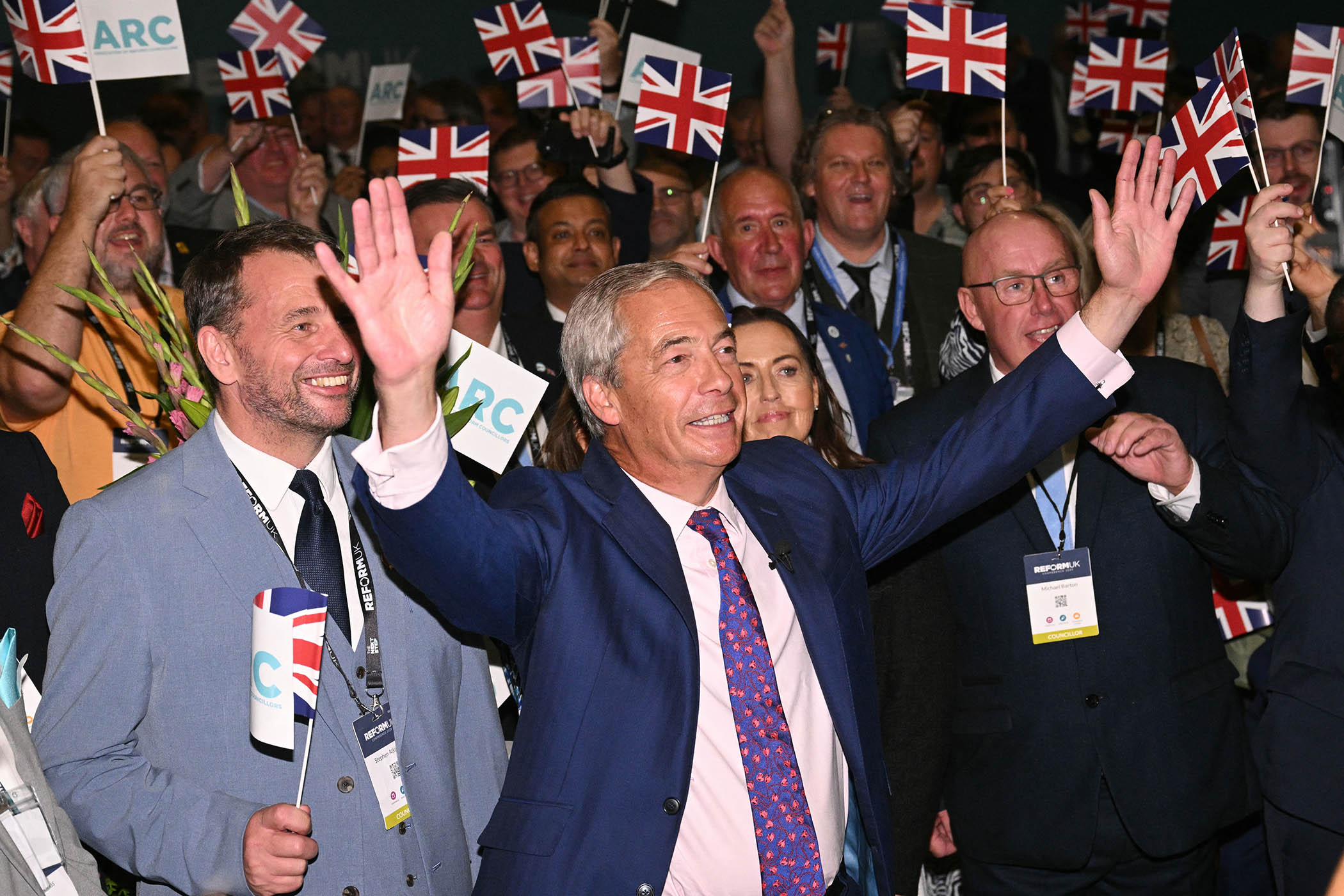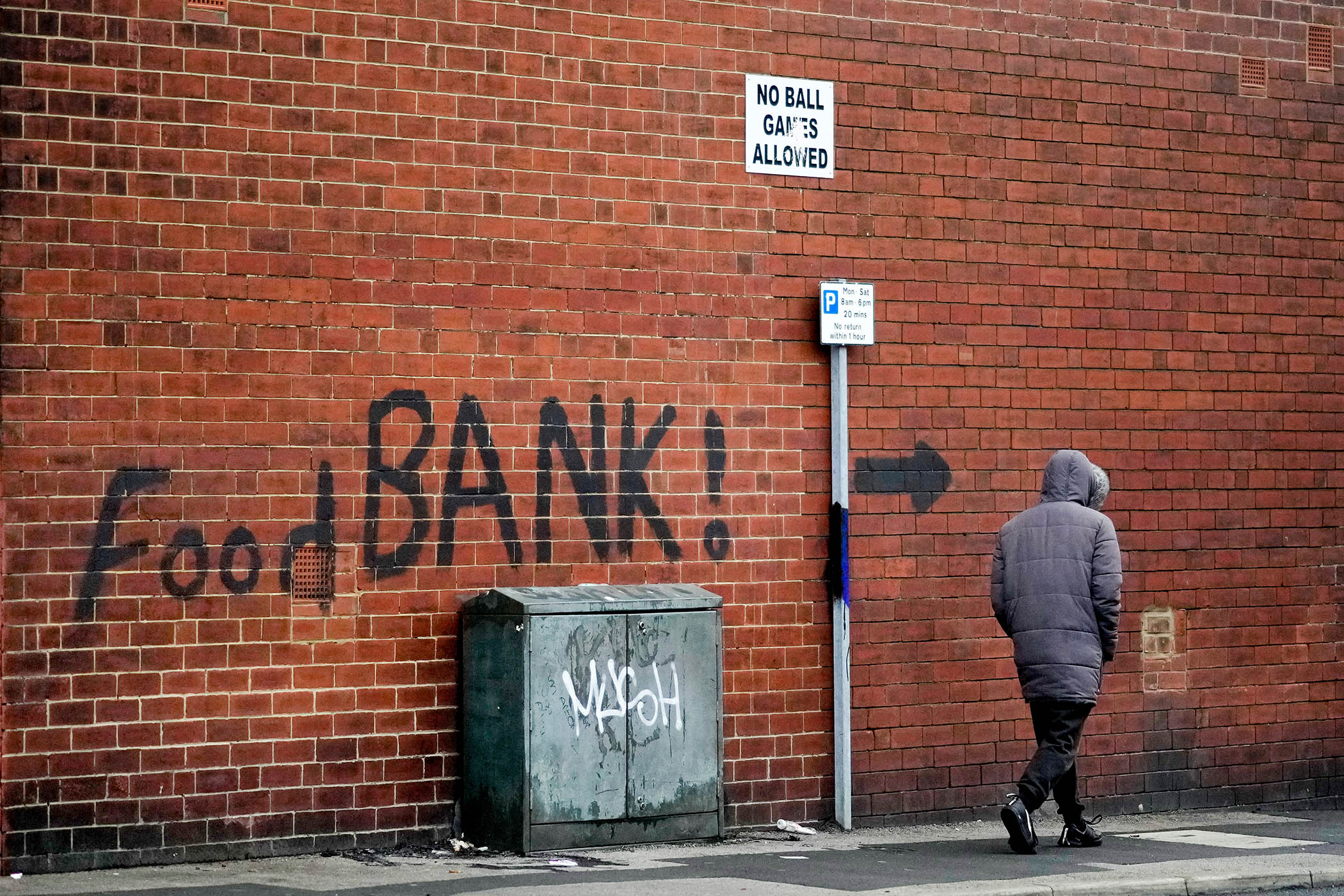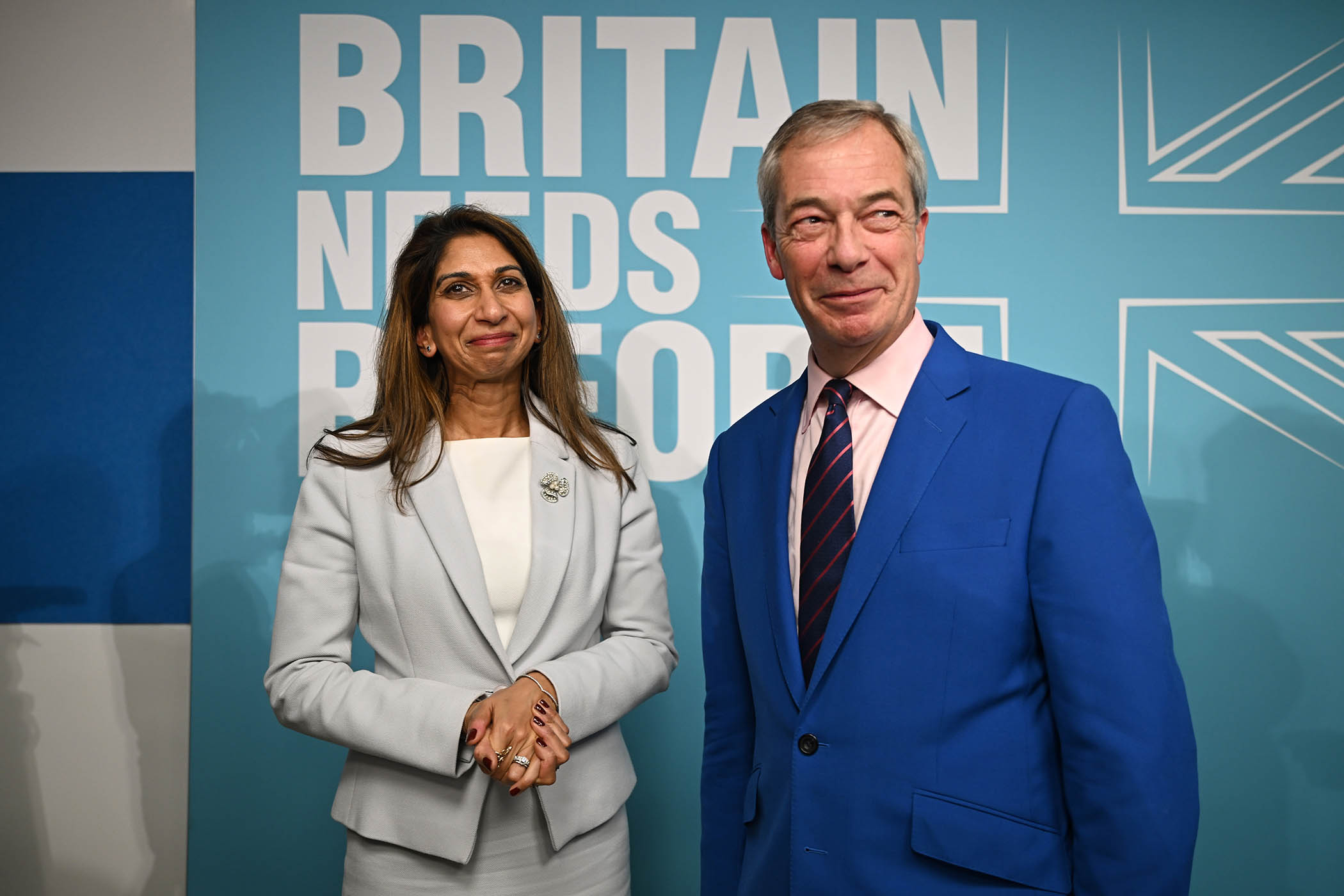There will be much debate about how many people attended the demonstration organised yesterday by Tommy Robinson, but there were a lot. The London march came just a week after Reform UK’s conference, which showcased a doctor claiming the Covid vaccine had given the king cancer.
What does this say about the state of the right in England? And about British politics? Is the “hard right” in the ascendant, and are we racing towards the Americanisation of politics, with all its anger, extreme positions and violence?
It is important that readers who watch these events on the news but spend little time with voters across the country understand that the answer is no. People are worried about immigration, particularly illegal immigration. Their concern about the former drove, in large part, the Brexit vote, and the rise in small boat crossings has driven the latter through the roof. But they still think climate change is real, and caused by human activity, and we are not a nation of anti-vaxxers.
Current politics is not driven by a shift in voter attitudes, but by policy failure. Under Dominic Cummings, Boris Johnson seemed to have stumbled across the perfect political alchemy: a tough approach to border control and national independence, a pragmatic approach to the economy and a stated desire to improve lives with his levelling-up policy. Such was his success that people questioned the ongoing relevance of the Labour party.
Fast forward two years and the Tories went from working-class heroes to selfish clowns who had destroyed the country. Did voters go to bed moderate Tories and wake up the equivalent of Maga activists? Obviously not. The Tory party imploded because they presided over situations the country would always have found intolerable. They said they’d cut immigration, control the borders, improve the NHS and grow the economy. Voters believed them. They were not suddenly persuaded of a right-wing platform, and they certainly weren’t moved by Robinson.
Policy failure did shift the salience of issues. And because people know Reform is leading in the polls, they are more willing to state long-held anti-immigration views. But, this is not the same as wanting to join far-right rallies or become free speech and anti-vax fanatics.
Farage knows this. He tries hard to distance himself from Robinson and has a good instinct for his voters’ basic positions. But many of his followers think public discourse has moved well beyond where it actually is. At some point this risks contaminating the Reform brand.
Not only could this soften his core vote, it will turn off the “best and brightest” he says he’ll attract to run departments. It could also harden a coalition against him. Should Reform appear to drift too far from what the majority find tolerable and create a tactically voting anti-Reform coalition, it would take only small swings to dash Farage’s hopes.
Related articles:
So the country doesn’t follow Robinson, though a significant minority might. If the Tories’ policy failure hadn’t been so monumental, we’d still be talking about the NHS and levelling up. Farage knows it. He just needs to keep his supporters in line.
Photo by Oli Scarff/ AFP/ Getty Images
Newsletters
Choose the newsletters you want to receive
View more
For information about how The Observer protects your data, read our Privacy Policy


